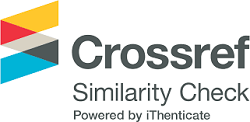Implementation of Automatic Skin Lesions Diagnosis-A Deep Learning Ensembling Approach
Abstract
Skin is the largest organ of the human body, it protects them from the external environment. However, the number of new skin cancer cases has been going up in the last few years. Fortunately diagnosing skin cancer in earlier stages could increase the probability of treating cancer. Due to machine learning (ML) and deep learning(DL) has achieved great success in different fields and has shown an outstanding performance in computer vision applications, lots of ML Applications is concerned in this domain. The main goal of this study is to find a computer-aided diagnosis system that can be powerful in early detection, which saves time and money. A simple pipeline is used to train different types of convolutional neural networks (CNNs), choosing the best four networks and ensemble them together without any prior segmentation or repainting. By using the HAM10000 dataset for training and testing, a high-accurate model is achieved which can classify seven kinds of skin lesions very precisely.
This is an Open Access article distributed under the terms of the Creative Commons Attribution License (http://creativecommons.org/licenses/by/4.0/), which permits unrestricted use, distribution, and reproduction in any medium provided the original work is properly cited.
Keywords
Full Text:
PDFTime cited: 0
DOI: http://dx.doi.org/10.25073/jaec.202044.306
Refbacks
- There are currently no refbacks.
Copyright (c) 2020 Journal of Advanced Engineering and Computation

This work is licensed under a Creative Commons Attribution 4.0 International License.










